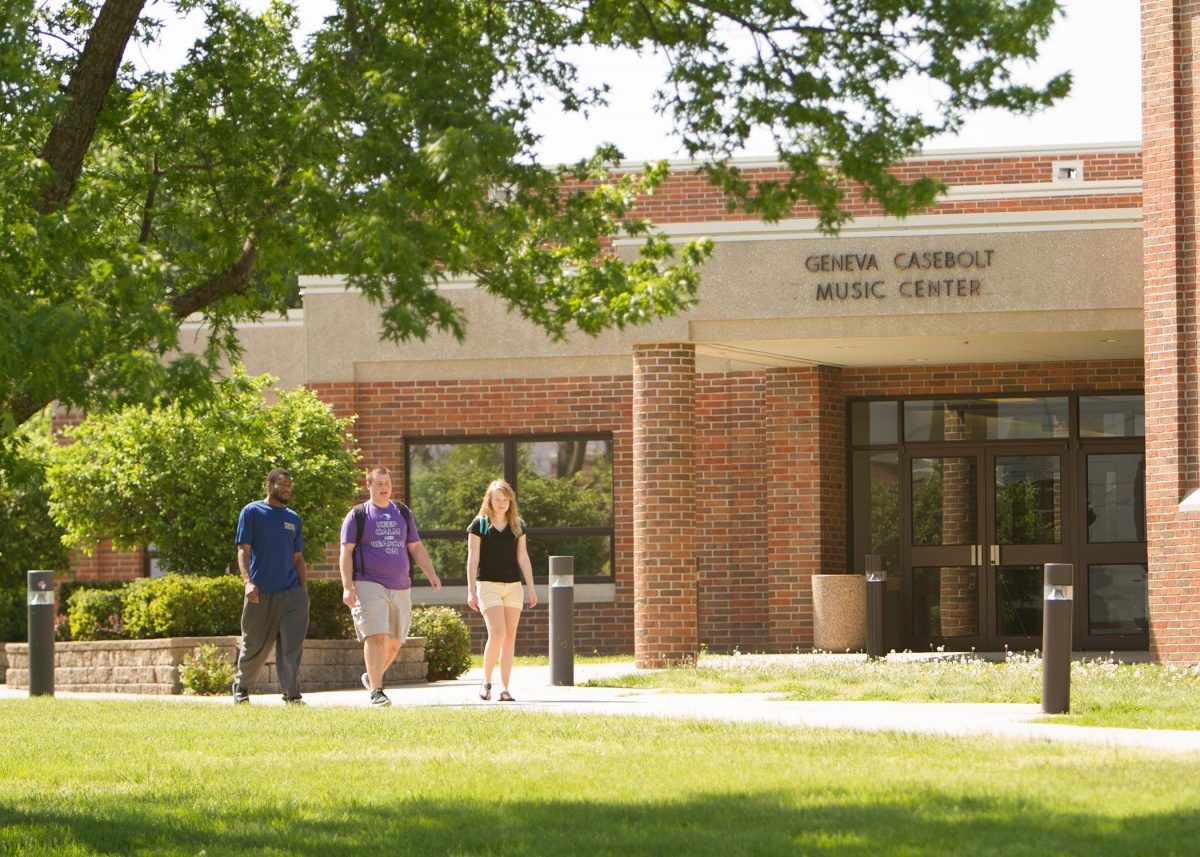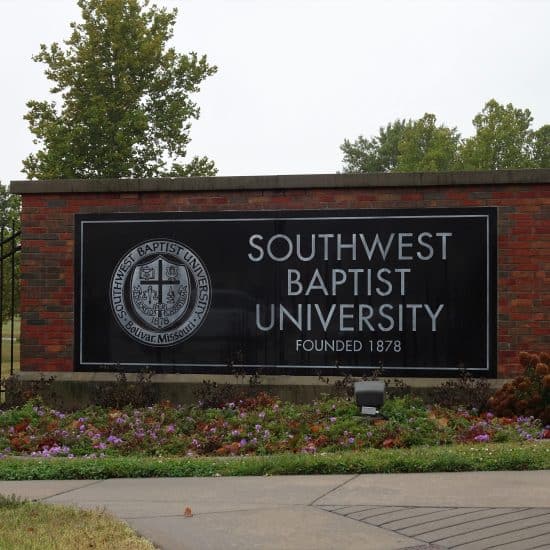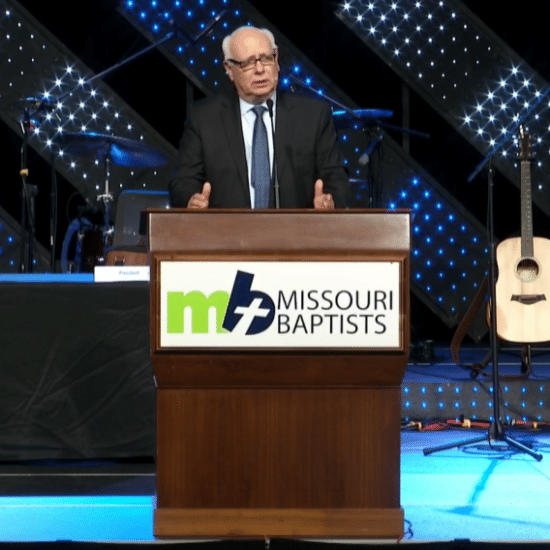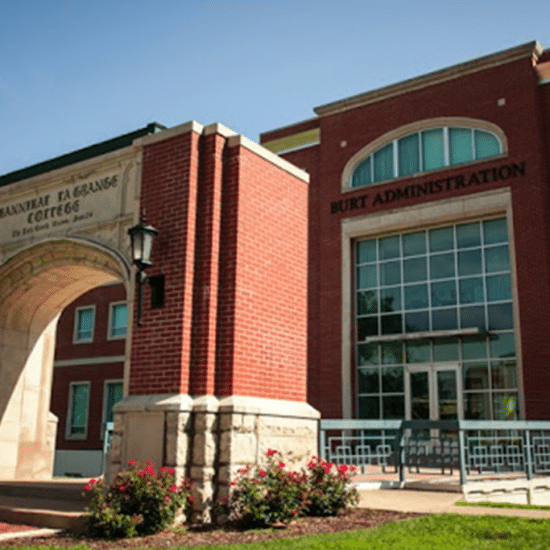
Amid a two-year controversy about theology and control, leaders at Southwest Baptist University in Bolivar, Missouri, decided to terminate its philosophy program and not renew the contract of its tenured philosophy professor — a move some other faculty feel didn’t follow the school’s own rules.

(Southwest Baptist University)
Although traditionally viewed as a bedrock discipline for liberal arts schools like SBU, the philosophy program’s elimination will come at the end of the academic year unless the decision is reversed. In addition to ending the program, the school will also not renew the contract of Zach Manis, SBU’s only philosophy professor. This is Manis’s 16th year teaching at SBU.
Since status as a tenured professor brings additional job security and philosophy remains critical to other programs at the school, some faculty at the school have raised concerns that the elimination of his position and the department did not follow the contractual procedures in the school’s handbook. The SBU Faculty Senate passed a resolution urging the administration to reverse the decision regarding the philosophy program and its professorial position.
Targeted for Alleged Theology
Manis has been among the most-targeted professors at SBU during the past two years as some Missouri Baptist Convention leaders pushed changes at the school. SBU fired Clint Bass, a religion professor, in 2018 for violating the school’s faculty handbook after Bass met with MBC leaders and others in an effort to allegedly drive out Manis and other professors in SBU’s Redford College of Theology and Ministry. As Bass unsuccessfully appealed his termination, he released documents leveling charges against Manis and other professors that the professors criticized as inaccurate.
Then ahead of the MBC’s annual meeting last October, the MBC deviated from standard practice and replaced SBU’s entire slate of trustees to put five new individuals on the Board. SBU President Eric Turner criticized the treatment of SBU during that nominations process in his report at the 2019 MBC annual meeting. Ahead of this year’s annual meeting later this month, the MBC changed its Nominating Committee rules to match its treatment of SBU last year.
After Turner’s remarks at last year’s MBC meeting, an individual from Bass’s church pressed Turner during the Q&A time to level charges against an unnamed professor. The individual targeted by her questioning was Manis, who she accused of having objectionable views on salvation and the afterlife. Turner acknowledged in his answer that Manis had “been reassigned out of the Redford school” and would “no longer be teaching ministry students.”
As indicated in that answer in October 2019, SBU had just moved philosophy from outside the Redford College to create a new philosophy department within the Casebolt College of Music, Arts, and Letters. Manis’s office was moved to another building, and he was tasked with creating a philosophy major. However, just months later, the new department was aborted along with Manis’s position and the embryonic major.
SBU describes the cut as part of a restructuring plan announced earlier this year in response to the coronavirus pandemic and other preexisting concerns about the school’s overall financial stability. The changes included eliminating 24 positions, 10 of which came from workforce reductions while the others were by not replacing individuals already leaving.
Although the positions are not listed by SBU, Manis was apparently the only tenured professor among the 10 eliminated staff and faculty positions. While SBU notes some financial concerns, it has not declared a “financial exigency,” which the American Association of University Professors says is necessary before laying off tenured professors (but the AAUP adds that even then tenured professors shouldn’t be the first ones targeted for elimination).
“The decision to end the Philosophy program was announced in June as part of a comprehensive university restructuring effort,” SBU said in an Oct. 7 statement to Word&Way. “Changes are being implemented throughout the next two academic years with a total savings of $3.2 million, about 5 percent of the University’s overall budget. The restructuring is in response to historic budget challenges, the uncertainty of COVID-19 and its impact on enrollment, and the impending demographic declines to be realized in 2026 and beyond for the Midwest.”
“The University had one student enrolled as a Philosophy major,” SBU added without noting that the decision to end the program occurred before the official launch of the new philosophy major.
Manis declined Word&Way’s request to offer a comment for this article.
Hell & Philosophy
While Bass and others accused Manis of holding heretical views about the afterlife, Oxford University Press was publishing a book by Manis on the topic. Defenders of Bass claimed Manis defended universalism and annihilationism.
However, in his June 2019 book, Sinners in the Presence of a Loving God: An Essay on the Problem of Hell, Manis actually offers a significant critique of the theories of universalism and annihilationism. He explained some of his beliefs on those theories about hell in the Jan. 10, 2020 episode of the Word&Way podcast “Baptist Without An Adjective.”
Manis also spoke out in December 2018 about Bass’s charges against him. Writing on the personal blog of Rodney Reeves, then-dean of Redford, Manis compared Bass’s actions to a “witch hunt.”
“[Bass] behaved, not like a brother in Christ, but like a secret agent in a police state, assigned the task of continual surveillance of his peers, for the purpose of trying to amass evidence by which they might someday be prosecuted for supposed thought crimes,” Manis added.
Manis included in his response a consideration of the nature of a Christian liberal arts college, which he argued is not for “indoctrination” but to help students learn “to think for themselves.” He added that college should not be “a glorified daycare for overgrown children” but a place where students are “engaging in rigorous and serious philosophical and theological reflection” and “forming their own views on these matters in a careful and responsible way.”
“In my philosophy classes, I do not ‘teach’ anything, in the indoctrination sense of the term,” Manis explained. “I do not instruct my students on what they should believe on controversial philosophical or theological matters. (The phrase ‘controversial philosophical matter’ is redundant, by the way. Any topic that is uncontroversial does not belong to the discipline of philosophy.) The claim that I ‘teach’ inclusivism, or purgatory, or any other view displays confusion about what it is that goes on in a philosophical classroom — or at any rate, what goes on in my classes.”
“My task as a philosophy teacher is to equip my students to develop and defend their own views. This is what it is to begin to think critically. And the fostering of this ability is among the principle ends of a Christian liberal arts university,” he added. “My classes have always been, and will always be, for as long as I have the distinct privilege of being a professor at SBU, a safe place for students to explore ideas, and in particular ideas about important matters pertaining to the Christian faith.”
Reeves, another top target of Bass, left SBU last year to pastor a church in Arkansas. Reeves previously called the allegations by Bass “lies” and “malicious attacks.”






